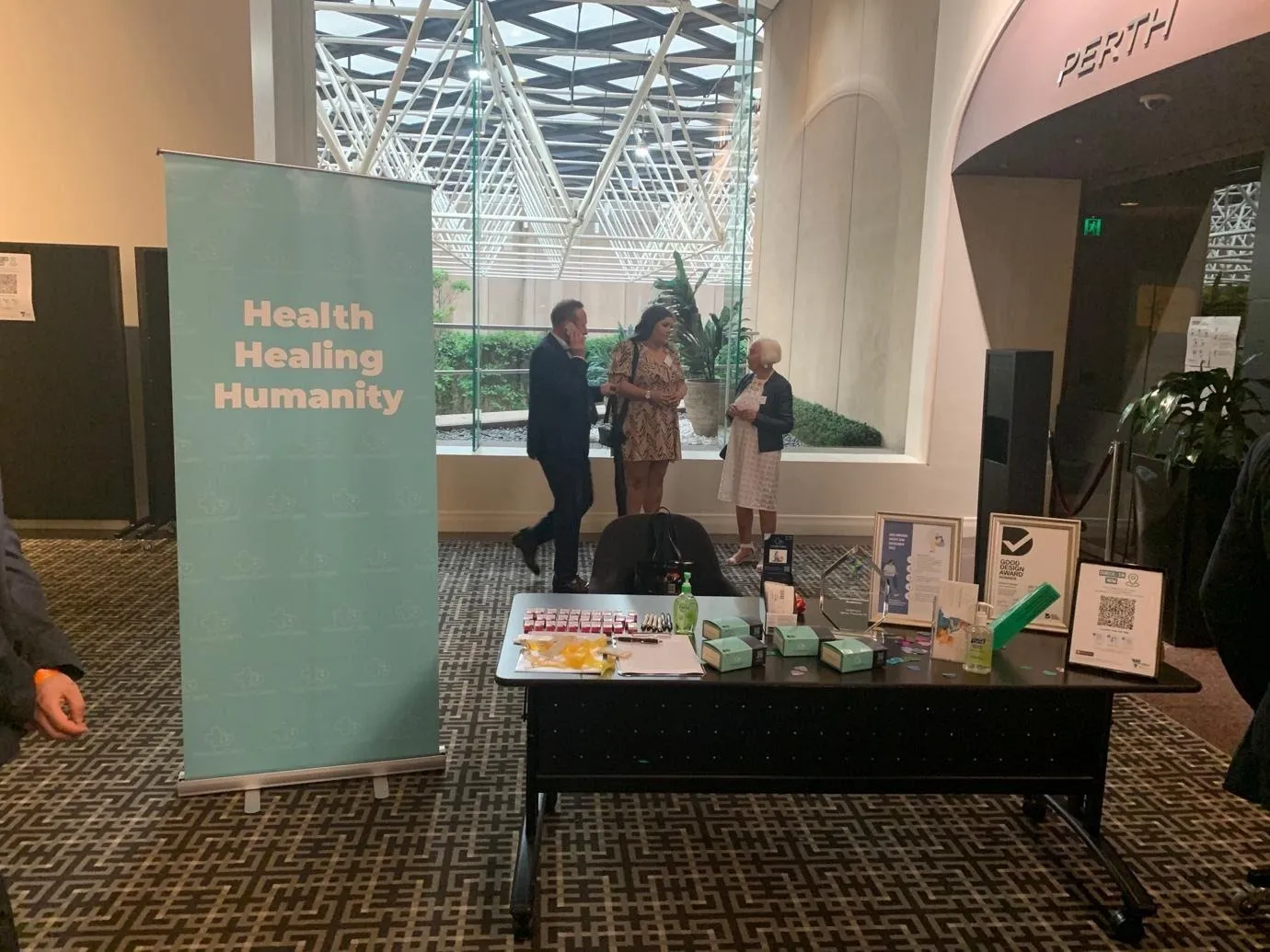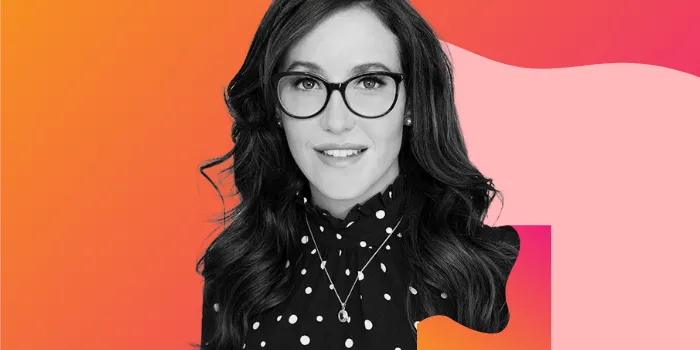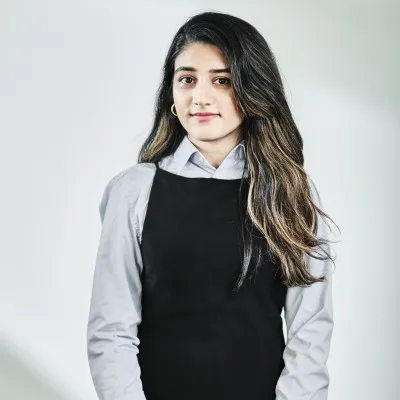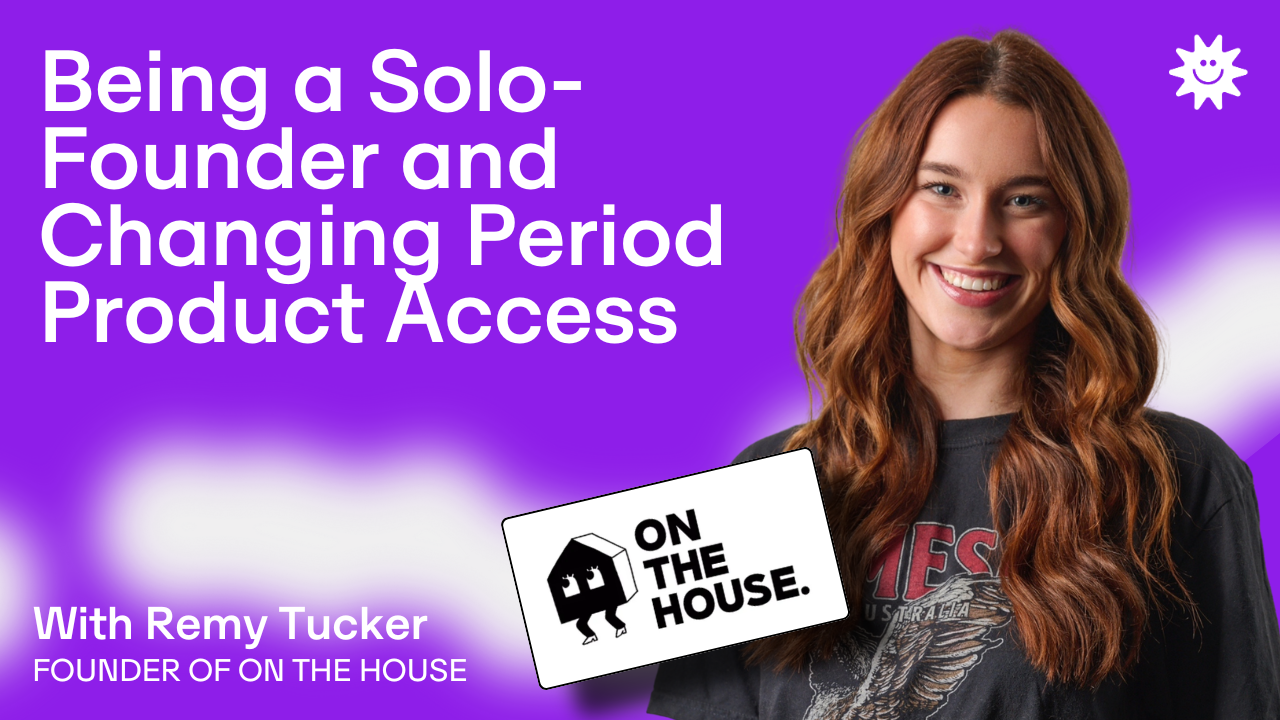In a world where female founders and leaders are constantly portrayed as ‘girl bosses’ and business prodigies who overcome obstacles overnight, I found that it was hard to get authentic insights into what the journey entails for ‘regular’ women.
Then I met Lauren Barber, the founder and CEO of NeedleCalm.
From our very first conversation, I was blown away by her honesty and drive, and I was offered a glimpse at what startup life is really like.
So for all the other women who see themselves at the helm of a startup one day, here is Lauren's story.
Taking on needle phobia
NeedleCalm is a medtech startup that has developed a medical device to alleviate the discomfort associated with needle-related procedures, and the startup’s origin story is one of finding purpose in a crisis.
As a nurse herself, Lauren witnessed patient anxiety firsthand. In fact, she had the idea for NeedleCalm while recovering from a surgery brought on by a needlestick injury.
“I was assisting with a procedure for a young patient when I was injured. However, a crisis brings change, and while in recovery, I started thinking about how needle-related procedures and the patient experience has stayed the same for countless years.
“If patients have a poor experience, it can exacerbate their fear of needles. If the procedure itself is done incorrectly, it can result in poor patient outcomes and even injuries for healthcare workers.”
Research shows that needle phobia is highly prevalent amongst children and teenagers, as well as about 30% of young adults. Individuals with needle phobia have been found to avoid medical procedures such as vaccinations, blood tests and even chronic condition management.
What I find inspiring about Lauren is that she took on the herculean task of creating a new medical device herself. If you’re unfamiliar with the process of designing a medical device, getting it approved and launching it in the market, I can sum it up in two words: extremely difficult.
Often there is minimal infrastructural and funding support available in the translation phase (when you take an idea from research to commercialisation), and there are also extremely complicated regulatory procedures and approvals which can take years to navigate.
“When raising funds, I didn’t feel comfortable approaching investors for large amounts. I was lucky to have very supportive workplaces, friends and family who saw the potential in NeedleCalm,” Lauren tells me.
Overcoming the odds, NeedleCalm was approved as a Class I medical device, and has subsequently won the Good Design Award for design excellence and the Consumer Health Products award for innovation.
But the startup’s biggest win has been the device’s impact on patients with needle phobias, Lauren says, having helped make procedures such as IVF, hormonal injections and vaccinations more accessible.
Most recently, a young female patient booked her first immunisation in over 13 years because of NeedleCalm. Lauren’s impact on patient lives and the healthcare system is undeniable.
“I believe that everyone was put on this earth to fulfil a purpose and I am of the firm belief that this is mine.”

The refreshingly honest leader we all need
Unlike many CEOs who are hesitant to share the true reality of their journey and future plans, Lauren is unflinchingly honest.
“I did the whole thing largely by myself and it was incredibly tough. There were lots of tears and sleepless nights,” she says.
“Being an entrepreneur is often romanticised, however, the reality is that there are many days when it is genuinely easier to give up than to keep going.
“It has been quite exhausting just surviving the last two years. We are currently working on 3 new products, and then will likely handover the business to a larger company to manage.”
It is perhaps this honesty that makes Lauren incredibly inspiring.
“Today, if people ask me about becoming an entrepreneur, I tell them the truth about my experiences, both positive and negative.
“It sometimes seems like I am trying to talk them out of being an entrepreneur, [but] I want to help people understand the sacrifices and sheer power of will required to succeed. It is not a path for everyone.”
However, as a female entrepreneur and CEO, Lauren does want to see more women in startups.
“If you’re thinking about becoming an entrepreneur or startup operator then start with research and find your purpose. This will guide you through tough times. Find a few mentors and float ideas past them,” she says.
“Personally, I’ve seen a lot of app-based or online businesses fail so I advise against this.
“Finally, don’t leave your day job with expectations of overnight success. Creating innovative solutions and changing lives is a long journey, so you need to be prepared to play the long game.”






.jpg)

